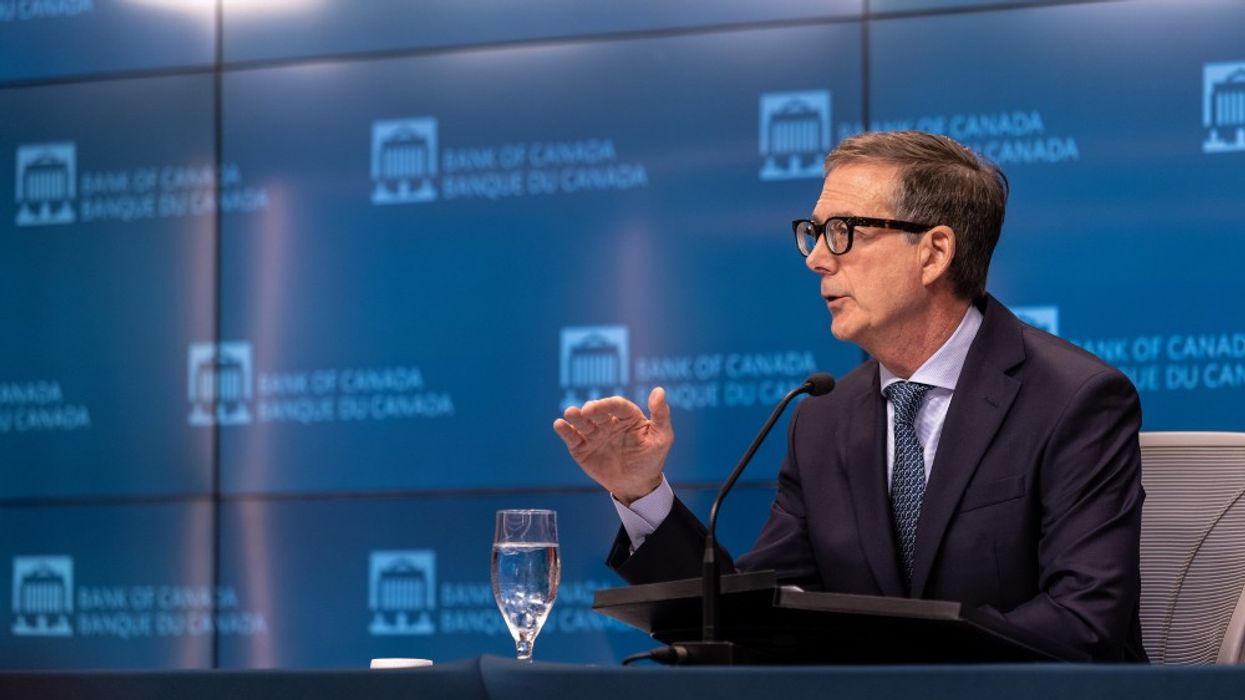Bank of Canada Governor Tiff Macklem was clear about what the focus of the Bank of Canada is heading into 2023: bring inflation -- currently at about 7% -- back down to 2%.
"We are resolute in our commitment to return inflation to the 2% target," Macklem said in his year-end address on Monday, at the Fairmont Hotel in Vancouver. Macklem reaffirmed that commitment again later in his speech, saying the return to 2% is the bank's "top priority."
As the Bank of Canada has reiterated with each rate hike this year, the hope is that raising interest rates will temper demand in order for supply to catch up, restoring balance to the economy and thus bring inflation down.
"We have increased interest rates rapidly both because inflation rose quickly and because the economy was overheating," Macklem said. "Once we started to see the momentum in domestic demand, we moved forcefully. Since March, we have raised our policy rate by four percentage points. Increasing rates rapidly to rebalance demand and supply and to keep long-run inflation expectations anchored to our target is our best chance of restoring price stability without a severe economic contraction."
Macklem said that rate increases have begun to work, but need more time to "feed through the economy."
Reflecting on 2022, Macklem said that "with the information we had a year ago, it was impossible to foresee all these developments." However, he also said it's "too convenient" to attribute the inflation we've seen to just bad luck, and that he sees three lessons.
The first, Macklem says, is that "restoring supply is harder than restoring demand." He says the COVID-19 pandemic -- as well as Russia's invasion of Ukraine -- made it clear that we took supply chains during normal times for granted. As waves of the pandemic hit different regions of the world at different times, supply and demand could not recover simultaneously, Macklem said, which compounded by a consumer shift away from services and towards goods.
On the part of the Bank of Canada, Macklem said that "with hindsight, the monetary and fiscal policy tools that were used to stabilize the economy worked effectively to support demand during the pandemic, but we underestimated the supply challenges."
The second lesson was that "averages can obscure inflationary pressures." Supply and demand differed from sector to sector, but the Bank of Canada focused too much on the average or aggregate picture, Macklem admitted, which was a reason why the Bank had a hard time predicting inflation. "We need a more granular understanding of the balance between demand and supply," he said.
Macklem's final takeaway was that "supply disruptions are more inflationary when the economy is overheated." He says that supply shocks have, in recent history, had only a temporary effect on inflation which would come back down on its own without any interest rate raises. However, the energy and agricultural price shocks we saw this year were "faster, larger, and more widespread" than what the Bank forecasted, he says. "Businesses, flush with customers, weren’t worried about raising their prices. So they passed on the higher input costs more quickly to final goods prices. And customers, eager to finally buy what they wanted, paid the higher prices."
"All three lessons are linked, and we have taken them to heart," Macklem said on Monday. "You don’t get 8% inflation because one thing went wrong. Our experience in 2022 is that surprises can combine and interact with each other, resulting in outsized effects on inflation. [...] The lesson from 2022 is that even if long-term inflation expectations are well anchored, when the economy is in excess demand, businesses raise their prices more quickly and by more when their costs increase."
READ: Three Out of Four Canadian Economists Predict Widespread Job Loss in 2023
Looking towards 2023, Macklem said the Bank of Canada recognizes that if rates are raised too much, it could push the economy into a recession, but that if they don't raise them enough, inflation will remain high and could stick. He said the Bank will continue trying to balance the risks, but with inflation still well above the target, the latter is the greater risk.
"If high inflation sticks, much higher interest rates will be required to restore price stability, and the economy will have to slow even more sharply," he said.
Macklem went on to acknowledge a burning question that many Canadians have: why does the Bank need to be so aggressive with their rate hikes and why is the 2% target so important?
"It’s simple even though it can be difficult," Macklem said. "The longer inflation remains high, and the higher it is, the harder it is for Canadians to plan their spending and savings. Inflation erodes the value of money. It distorts and confuses the information and incentives that consumers, businesses, entrepreneurs, savers and investors rely on to make their economic decisions. It feeds frustration, social tensions and a sense of unfairness."
"Low, stable and predictable inflation is fundamental to a well-functioning and growing economy that delivers prosperity for its citizens" and the Bank's job is to ensure price stability for Canadians, Macklem reiterated.
"We know the adjustment is difficult. But it will be worth it."





















